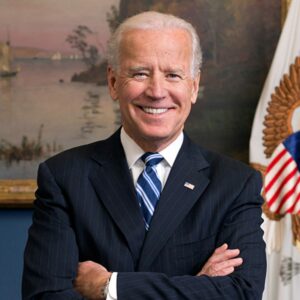In a new age of pride parades, LGBTQ+ representation in the media, and support groups both in-person and online, many school administrations are struggling to keep up with new standards for tolerance, while also respecting people’s religious beliefs and free-speech rights. It is an increasingly prevalent story, and most recently in Virginia, teacher Peter Vlaming was fired from his job for refusing to use a transgender student’s preferred pronouns. The student, who publicly transitioned from female to male during the summer before ninth grade, requested that the teacher use his preferred male name and he/him/his pronouns. Vlaming, a French teacher at West Point High, began using the student’s preferred name, but abstained from using pronouns altogether. After multiple warnings from school administration along with an incident in which he inadvertently referred to the student as “she”, the teacher was fired for insubordination. Vlaming is now suing officials in the school district for wrongful termination, alleging that his firing violated the First Amendment, which protects freedom of speech and religion. Vlaming says that his refusal to use pronouns was based on his deeply-held religious beliefs, and people with similar religious convictions should not be compelled by the government to say things with which they do not agree.
For students at Santa Barbara High School, this begs the question: how would this school’s administration respond to similar behavior from a Santa Barbara High School teacher? The co-president of the school’s Gender Sexuality Alliance (GSA), Lee Palomares, who goes by they/them pronouns, said that generally the school and its teachers are accommodating to students’ preferred pronouns and names. Lee, who started asking teachers to use their preferred pronouns this year, said that if they did have an issue with a teacher, they would report it to Santa Barbara High School administration and to the Pacific Pride Foundation, a non-profit based in Santa Barbara that provides resources and support to LGBTQ+ individuals. Lee hoped that the school would respond to teachers such as Vlaming in a similar way to West Point High, with warnings, trainings, and, if deemed necessary, termination, and described this type of behavior from teachers as “transphobic” and “dehumanizing.” Additionally, Lee said that Vlaming bringing his religion into this issue is “inappropriate,” and that this case is solely about discrimination. Although Lee thinks that Santa Barbara High School is generally accomodating to LGBTQ+ students, they believe that certain changes such as listing student’s pronouns and rosters and enforcing teacher’s use of students’ nicknames will make Santa Barbara High School a better place for transgender students. (The GSA, which is an ASB-approved club that provides a safe-space for LGBTQ+ students and straight allies, meets on Wednesdays at lunch in room 209.)
The West Point High case is representative of the struggles that many transgender students face at school, from bullying to so-called “bathroom bills” in state legislatures which only allow students to use bathrooms conforming to their biological (or birth certificate) sex. Beyond the religious aspect, there is certainly a cultural and generational divide at play here. Even for non-religious teachers, using preferred pronouns for a student is a very new phenomenon that may be confusing or difficult. America is a country which prides itself on tolerance. This includes tolerance of transgender people, but also tolerance of different religions. With both of these in mind, shouldn’t Peter Vlaming’s compromise to avoid pronouns altogether have been enough for the school board? Perhaps a better solution would have been to have found the student a different teacher who was not bound by their religions to refer to the student in a way that the student deemed as hurtful. On the other hand, LGBTQ+ groups such as the Resource Center at the University of Milwaukee say that referring to someone by their preferred pronouns is extraordinarily important because they may otherwise feel “disrespected, invalidated, dismissed, alienated, or dysphoric,” especially when it comes from authority figures such as teachers. One thing is for certain when it comes to LGBTQ+ people being accommodated: change is happening fast. Just last month, the Merriam-Webster dictionary added “they” as a singular pronoun for nonbinary individuals, and recently many of the leading 2020 Democratic presidential candidates appeared at a town hall exclusively focused on LGBTQ+ issues. With teenagers at the center of this cultural shift, there are two questions the administration at Santa Barbara High School must answer: can they keep up, and will they know if they have gone too far?






Be First to Comment